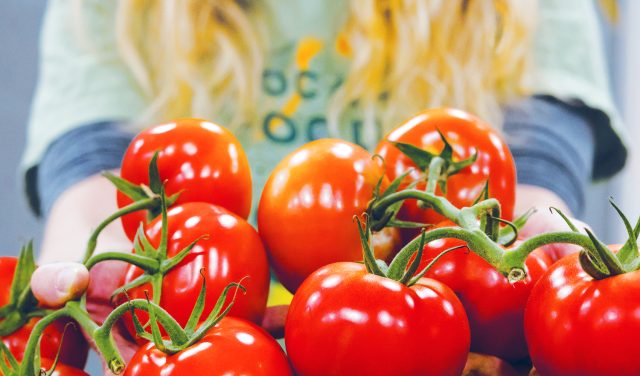
Eleven farms, agricultural producers and non-profit organizations are receiving grants from Boulder County to catalyze regenerative practices, education, market infrastructure and more.
The County announced the recipients of its 2023 Sustainable Food & Agriculture Funds on March 21. One of those recipients is the Boulder County Farmers Markets (BCFM), which will open its Saturday markets in Longmont and Boulder on April 1.
BCFM Executive Director Mackenzie Sehlke says the $60,000 grant will help the organization expand its online marketplace and curbside delivery programs.
“[The grant] is a piece of the puzzle that makes it possible for us to serve as many people with high-quality food as we can,” she says, adding that the online marketplace and delivery programs allow them to reach lower-income populations that show up in smaller numbers to the in-person market because of job or transportation constraints.
While Sehlke says BCFM has the longest farmers market season in the state (April to November), the online marketplace and delivery programs help fill the four-month winter gap, providing local farmers and producers another revenue source, and supplying residents with access to local food during the market’s off-season.
Sehlke says the success of those programs, which launched in 2020 when the in-person market closed because of pandemic restrictions, was “somewhat unexpected.”

Staff filling and organizing bags for BCFM’s CSA program. Photo by Eliza Earle.
Last year, BCFM’s CSA program delivered 14,000 bags of fresh produce to low-income households.
Sehlke hopes putting the grant resources into these programs will further increase accessibility to locally grown food.
“Supporting local food and agriculture is not just about encouraging the production of fresh and healthy food. It’s about cultivating a system that is rooted in resilience, sustainability and social justice,” Boulder County Commissioner Marta Loachamin said in a press release.
The farmers market also offers the Double Up Food Bucks program, which doubles up to $20 in fresh fruit and vegetable purchases for those with SNAP benefits.
After the SNAP benefit amounts decreased this month, Sehlke is aware folks are working with fewer dollars, but isn’t sure how that will impact participation at the market.
“Even though that one support is gone, this [program] remains here in the community,” she says.
This comes at a time when food prices are on the rise.
The United States Department of Agriculture found “food-at-home” prices increased by 11.4% in 2022, and it predicts prices will increase nationally in 2023 for items like meats, poultry, dairy products, fats and oils and fresh fruits and vegetables.
Speedwell Farm & Gardens, a regenerative and organic farm on a 2-acre plot just north of Boulder, was awarded a $40,000 grant from the fund. The farm distributes food to more than 60 CSA members and 10 restaurants between Boulder County and Denver, including OAK at Fourteenth, Blackbelly and Moxie Bread Co.

BCFM staff handing a winter market share bag to a customer as part of the curbside distribution program. Photo by Eliza Earle.
Cody Jurbala, co-owner and operator of Speedwell Farm & Gardens, plans to use the grant on perennial cropping and closed-loop fertility projects like mushroom-based compost and an aquaponic system that will help introduce nitrates to his gardens.
“[The grant] is definitely exciting and surprising, but at the same time, I was very confident in our proposal,” says Jurbala, who started Speedwell Farm in 2017 converting backyard lawn spaces into food-production gardens.
Other recipients of the Sustainable Food & Agriculture Fund are Boulder Valley Ranch, Community Fruit Rescue, Harvest of All First Nations, High Plains Biochar and Yellow Barn Farm, Nederland Victory Gardens, Rocky Mountain Pumpkin Ranch, St. Vrain Valley School District, Sustainable Alliances, Inc. and Sustainable Living Designs.
The fund was established in November 2016 after voters approved the Sustainability Tax ballot initiative, which allocated a portion of sales and use tax revenue to fund countywide sustainability programs.
While BCFM will use the grant money to further develop the curb-side delivery and online market programs, Sehlke is looking forward to launching the 2023 in-person markets on April 1.
“Lots of historic farms and new farmers with us this year,” she says. “[There will be] lots of new exciting food to try and lots of local favorites on the street.”














